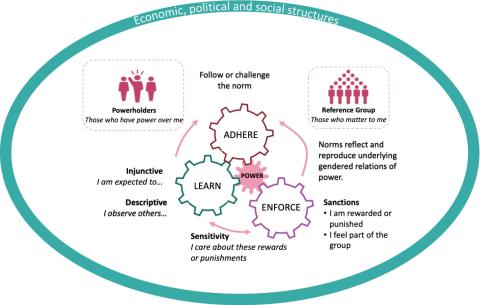- Toolkit
- 10 December 2020
Measuring gender and social norms - recommended measures for use in survey research
- Author: ESubden
- Published by: Emerge

Social norms are the informal rules and expectations that govern behaviour in groups or societies imparted via socialization across the lifespan. We can assess social norms by asking: 1) what the respondent thinks others in their given reference group are doing or not doing (descriptive norms) and 2) their perception of what others in their given reference group think they should or should not do (injunctive norms). Gender norms are the socially ascribed rules and expectations of individuals based on their biological sex or gender, and these can restrict choices when people wish to move beyond gendered expectations.
Social norms measures are less available than attitudinal measures, which capture an individual’s beliefs or views about behaviour. However, measures of an individual’s attitudes and beliefs are not the same as social norms in that individual’s environment, though social norms do affect individual attitudes/beliefs. Measurement of social norms in gender, health, and development surveys is a growing field but requires more development and psychometric testing.
Emerge has created a toolkit of key resources and modules for use in measuring norms.
- Countries / Regions:
- Global